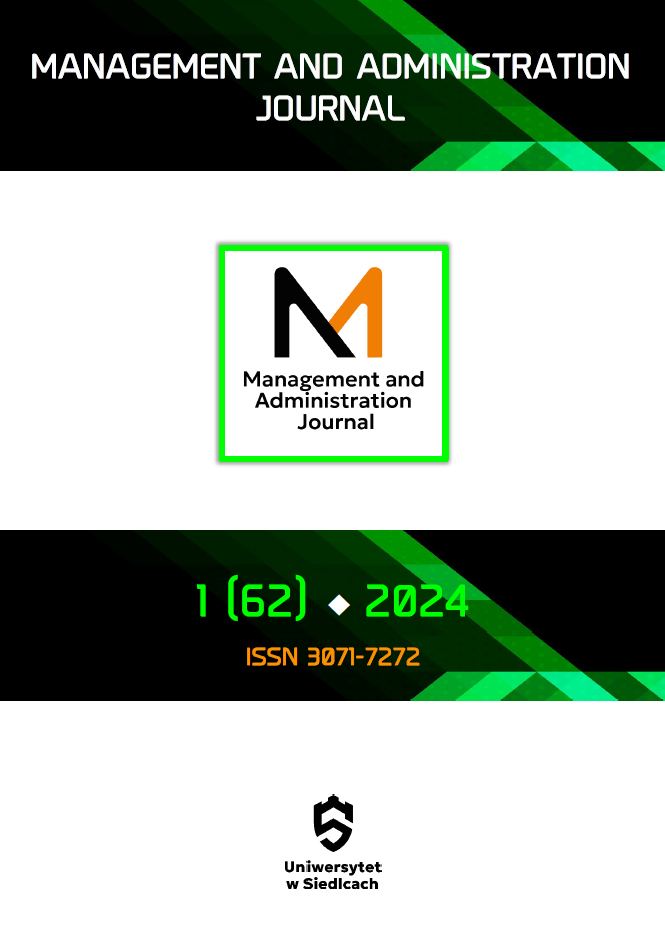THE JEAN MONNET PROGRAMME AS AN INSTRUMENT OF EDUCATION FOR DEMOCRACY
DOI:
https://doi.org/10.34739/maj.2024.01.03Keywords:
democracy, education for democracy, civil education, Jean Monnet Programme, Erasmus ProgrammeAbstract
The Maastricht Treaty introduced the concept of European Union citizenship, providing additional rights for European citizens. The EU has given its citizens the opportunity to participate and engage in politics, as well as the additional right to vote, but has not focused on investing in citizenship education that would give citizens the knowledge and skills necessary to exercise these newly acquired rights. So far, EU education policy has focused mainly on employability and access to the labor market. The discussion on citizenship education at European level has been quite lively. According to the documents examined, the evaluation of education for democracy in the European Union is low, but the evaluation of the Erasmus+ program in civic education is positive. This article is the result of research on the use of European Union programs, in particular the Jean Monnet Programme in education for democracy.
Downloads
References
Carpenter, S., Mojab, S. (2017). Youth as/in crisis: young people, public policy, and the politics of learning. Rotterdam-Boston-Taipei: Sense Publishers.
Dąbrowska-Resiak, J. (2018). Badanie losów edukacyjnych i zawodowych polskich studentów uczestniczących w projektach mobilności w programie Erasmus [Erasmus… and what next? Study of the educational and professional fate of Polish students participating in mobility projects in the Erasmus program], Raporty z badań FRSE, 4, Fundacja Rozwoju Systemu Edukacji, Warszawa.
Dybowska, A. (2022). Europejskie polityki publiczne dla młodzieży – rys historyczny i perspektywy [European public Youth policies – historical outline and prospects]. Siedlce: Wydawnictwo Naukowe UPH.
ERASMUS+ Jean Monnet Action Calls. https://www.eacea.ec.europa.eu/system/files/2022-11/E%2B%20JM_Infoday_International%20dimension_2022_JM.pdf.
Erasmus Programme Guide. https://erasmus-plus.ec.europa.eu/document/erasmus-programme-guide-2022-version-1.
European Parliament resolution of 6 April 2022.
Kohlberg, L. (1964). Development of moral character and moral ideology. In: M.L. Hoffman, Louis W. Hoffman, Review of Child Development Research, Vol. 1. New York: Russel Sage Foundation.
Koszalińska, K. Edukacja obywatelska – podstawowe uwarunkowania, [Civic education – basic conditions]. https://wyd.edu.pl/images/Zeszyty_naukowe/IXKarolinaKaszliska.pdf.
Lind, G. (1985). Moral dilemmas. Philosophical and psychological issues in the development of moral reasoning. In: Harding, C.G. (ed.), Growth and Regression in Cognitive-Moral Development, Chicago: Precedent Publishers Chicago.
Mudyń, K. (2002). W poszukiwaniu demokratycznej struktury osobowości, [In search of a democratic personality structure], Kultura i Edukacja 1, s. 40-51.
Nowak, E. (2013). Demokracja zaczyna się w głowie. Rozwijając osobowość demokratyczną [Democracy begins in the mind. By developing democratic personality], PRINCIPIA LVII-LVIII.
Oral question document 1-13/84 with debate by Mrs Boserup, Hammerich, Mr Bonde, Mr Boegh and Mr Skovmand to the foreign ministers meeting in political cooperation: the practical consequences of the signing of the solemn declaration on European union at the Stuttgart summit, (1983) Stuttgart.
Podsumowanie udziału polskich instytucji w akcjach programu Erasmus+ 2014-2020 zarządzanych centralnie przez Europejską Agencję Wykonawczą ds. Edukacji i Kultury (EACEA) i adresowanych do sektora szkolnictwa wyższego, [Summary of the par-ticipation of Polish institutions in the actions of the Erasmus+ 2014-2020 program managed centrally by the European Education and Culture Executive Agency (EACEA) and addressed to the higher education sector]. https://erasmusplus.org.pl/brepo/panel_repo_files/2021/10/27/byq0pr/podsumowanie-akcji-centralnych-2014-2020-102021.pdf.
Pornschlegel, S., Zels, S., Ochrona wartości europejskich: Argumenty przemawiające za utworzeniem Europejskiej Agencji ds. Edukacji Obywatelskiej [Protecting European values: Arguments supporting the creation of a European Agency for Citizenship Education]. Brussels: European Policy Center.
Report on the implementation of citizenship education actions (2021/2008(INI)), Strasbourg, 23.3.2022 Commission on Culture and Education. https://www.europarl.europa.eu/doceo/document/A-9-2022-0060_PL.pdf.
The Treaty on European Union, (1992) Document 11992M/TXT, Maastricht.
Downloads
Published
Issue
Section
License
Copyright (c) 2024 Management and Administration Journal

This work is licensed under a Creative Commons Attribution-NonCommercial-NoDerivatives 4.0 International License.





